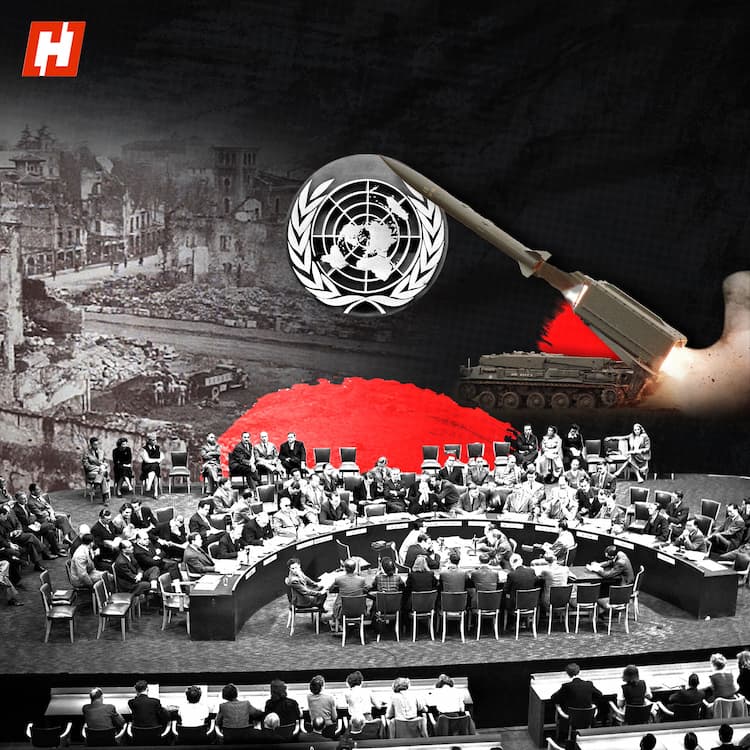The gold rush at the heart of Sudan's civil war | Explained

As Sudan burns and its people starve, the death of 11 miners has once again put the spotlight on the gold rush at the heart of deadly civil war.
In a statement released on Sunday, the Sudanese Mineral Resources Company (SMRC) said that the partial collapse of a traditional gold mine occurred in an “artisanal shaft in the Kirsh al-Fil mine” in the remote desert area of Howeid.
And here’s why this is important.
Sudan is Africa’s third-largest country and one of the continent’s top gold producers. Despite several larger industrial facilities, these artisanal and small-scale gold mining accounts for the majority of gold extracted. Gold that is coveted by both factions of the brutal civil war -- the Sudanese Armed Forces (SAF) and the Rapid Support Forces (RSF).
In contrast to larger industrial facilities, these artisanal mines lack safety measures and use hazardous chemicals that often cause widespread diseases in nearby areas. Thus highlighting the blatant disregard for human life as both factions look to gain the upper hand in this mad scramble for Sudan’s precious yellow metal.
How did gold become the cornerstone of the civil war?
To understand what’s happening today we need to dial it back to 2011-12, when three key developments elevated gold to a national strategic asset.
Prior to 2011, Sudan's primary source of revenue was oil exports - which accounted for more than half of its national budget and around 95% of exports. But the secession of South Sudan in July 2011 resulted in a significant loss of said revenue for Sudan, as the majority of oil reserves were located in the South.
See Also: Trump brokers peace deal between DR Congo and Rwanda in exchange for minerals
Secondly, artisanal miners discovered a large gold deposit in the Jebel Amer region of North Darfur. The rich deposits brought sudden wealth to a previously peripheral region of North Darfur.
This grassroots gold rush was not initially outlawed. Instead, the government sought to harness its revenue-generating potential through indirect regulation. The aforementioned SMRC began imposing taxes and levies on local gold markets. Simultaneously, the regime of then-President Omar al Bashir granted mining concessions to companies with close ties to the military, including companies linked to the SAF.
Third, when the global rise in gold prices made the mineral a viable substitute for lost oil revenues, the al Bashir government moved to centralise control over gold. In 2012, the Sudan Gold Refinery was opened in Khartoum under the Central Bank’s ownership. All legally exported gold had to pass through this facility, and the export of unrefined ore was banned. That same year, gold constituted 60% of Sudan’s exports.
Now, for the uninitiated, Sudan’s civil war pits the nation’s military or SAF and what remains of the government against their former ally, the paramilitary group known as the RSF.
Fast forward to 2017 and the RSF’s commander, Lt. Gen. Mohamed Hamdan, a camel trader turned warlord, saw the potential of these gold mines and seized one of Sudan’s most lucrative ones in 2017.
The mine became the cornerstone of a billion-dollar empire that transformed the RSF into a formidable force. Sheer audacity saw General Hamdan later selling that same mine to the government for $200 million, helping him buy even more weapons and political influence. It is that wealth and ambition that led to a standoff with the Sudanese military, paving the way for the civil war that has all but destroyed the country.
The fight for gold only intensified when the war broke out in 2023. And in one of his opening salvos, General Hamdan seized back the very same mine he had sold to the government. Weeks later, his fighters marched on the national gold refinery in the capital as well, making away with $150 million in gold bars according to the government.
The civil war has shattered Sudan’s already fragile economy, collapsed its health system and turned much of the once-proud capital into piles of rubble. According to the United Nations nearly 25 million people - about half the population - are experiencing acute food insecurity, with 638,000 facing catastrophic hunger. A record high, even for a nation with a known chronic shortage of food.
But surprise-surprise, the gold trade is booming.
The production and trade of gold has actually surpassed pre-war levels, and that’s just the official figure in a country rife with smuggling. Nevertheless, the army-backed government announced record gold production of 64 tonnes in 2024.
The UAE Connection
According to official and NGO sources, nearly all of this gold trade is funnelled through the United Arab Emirates, enriching both the factions. Some experts liken Sudan’s gold to so-called blood diamonds and other conflict minerals. They stress that to end the war, one must follow the money.
When asked for a comment, an official 'firmly rejected' so-called 'groundless allegations' that the UAE was smuggling or profiting off gold from Sudan, during the African nation's 'humanitarian catastrophe'.
The official also said that the UAE takes the regulation of its gold sector very seriously and “will continue to maintain its position as a leading ethical gold hub, actively preventing illicit flows from entering the market”.
But according to Sudanese officials, mining industry sources and Swissaid's research, nearly all of Sudan's gold flows to the UAE, via official trade routes, smuggling, and direct Emirati ownership of the government's most lucrative mine.
Earlier in March, Sudan filed a case with the International Court of Justice, accusing the UAE of complicity in genocide committed by the RSF in Darfur. Abu Dhabi, which has repeatedly denied accusations of funnelling weapons to the RSF, has called the case a "publicity stunt" and said it would seek to have it thrown out.
Abu Dhabi says it has adopted a "responsible gold sourcing policy", including a regulatory legal framework revised in January 2023, to develop a "well-regulated gold sector".
But Marc Ummel, a researcher with Swissaid, claims the UAE is not really implementing the regulations. Citing Dubai Commodity Exchange data, he said there was no indication the UAE's conflict-gold market had shrunk in recent years. Contrary to government claims, the UAE is allegedly the leading destination for smuggled gold from all of Africa. Ummel went as far as accusing the UAE of continuing to fund the Sudan war.
The discovery of gold was meant to herald positive change, as Sudan embarked on a new chapter following years of conflict. The Sudanese people hoped that gold would lift up their economy.
Instead, power hungry military leaders and greedy foreign powers have turned the glimmer of hope into despair.
See Also: Russian leader claims complete annexation of Luhansk | Moscow-controlled Ukrainian territory in maps
Trending in Geopolitics

The only Indian ever executed by the Nazis — M. Madhavan

'New world order' that never was: 80 years since World War 2

Why advocates wear black and white

